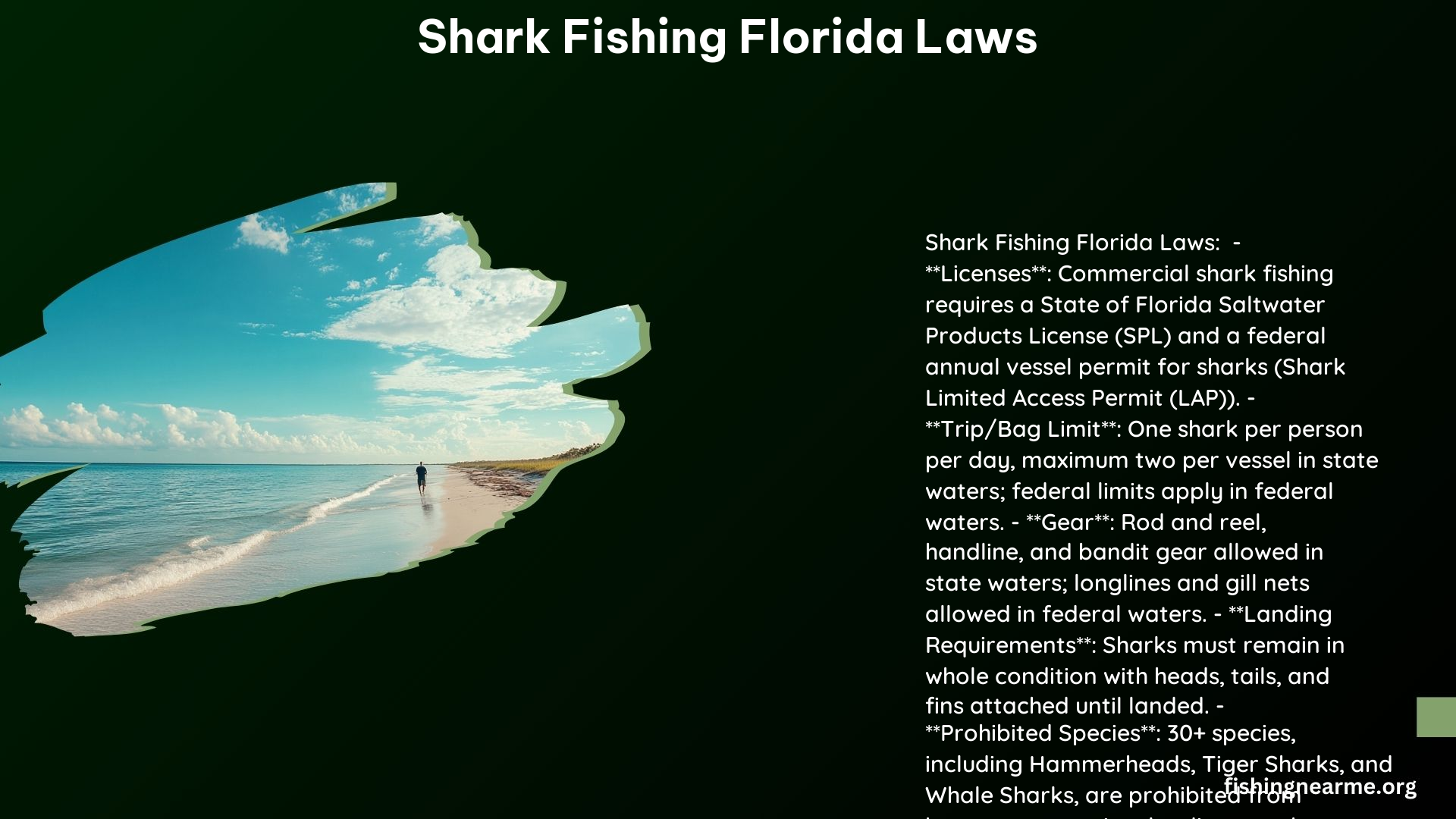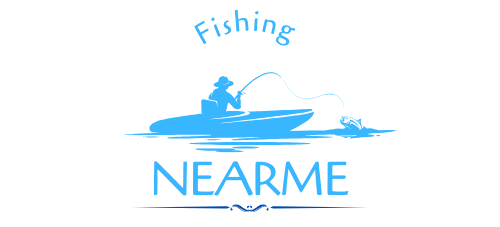Shark fishing in Florida is a popular pastime, but it’s essential to understand the state’s regulations to ensure responsible and legal practices. This comprehensive guide will cover the key aspects of shark fishing laws in Florida, including licenses, permits, bag limits, size restrictions, gear requirements, and prohibited methods and species.
Licenses and Permits
To engage in shark fishing in Florida, anglers must possess the following licenses and permits:
- State of Florida Saltwater Products License (SPL): This license is required for commercial shark fishing.
- Federal Shark Limited Access Permit (LAP): This permit is also required for commercial shark fishing in federal waters.
- Shore-based Shark Fishing Permit: This permit is required for recreational shark fishing from shore, including jetties, bridges, and piers. The permit is free and must be renewed annually.
Bag Limits and Size Restrictions

Florida has specific regulations regarding the number and size of sharks that can be harvested:
- Recreational Bag Limit: One shark per person per day, with a maximum of two sharks per vessel per day.
- Size Limits: Eight species of sharks can be harvested without size restrictions, while seven other species must be at least 54 inches long from the fork of the tail to the nose.
Gear Requirements
Shark fishing in Florida is subject to specific gear requirements:
- Hook and Line: Sharks can only be caught using hook and line gear.
- Non-Offset, Non-Stainless Steel Circle Hooks: These hooks are required for targeting or harvesting sharks.
- Prohibition on Multiple Hooks: Treble hooks or any other multiple hook with two or more points and a common shaft are prohibited.
- Cutter Device: Anglers must have a device capable of cutting the leader or hook when targeting sharks.
Prohibited Methods and Species
Florida has several restrictions on shark fishing methods and species:
- Spearing: Prohibited for shark fishing.
- Chumming: Prohibited when fishing for sharks from the beach.
- Prohibited Species: Twenty-five species of sharks are prohibited from harvest, possession, landing, purchase, sale, or exchange, including the Atlantic angel, basking, bigeye sand tiger, and several others.
Landing and Release Requirements
Anglers must follow specific guidelines when landing and releasing sharks:
- Whole Condition: Retained sharks must remain in whole condition with heads, tails, and fins attached until landed.
- Gilling and Evisceration: Allowed while on waters or in a fishing location.
- Release: Prohibited shark species must be released without delay, and if hook removal will delay release, the hook or leader must be cut as close to the hook as possible.
Additional Regulations
There are a few additional regulations that anglers should be aware of:
- Federal HMS Permit Holders: Recreational anglers fishing for sharks in state waters do not need a federal HMS vessel permit, but if fishing from a HMS-permitted vessel, they must comply with permit requirements.
- Shark Survival: Anglers are encouraged to minimize fight time, use “shark-smart” tackle, and handle sharks carefully to ensure their survival.
Key Statistics and Figures
- Shark Species: Twenty-five species are prohibited from harvest, and eight species can be harvested without size restrictions.
- Bag Limit: One shark per person per day, with a maximum of two sharks per vessel per day.
- Size Limit: Seven species must be at least 54 inches long from the fork of the tail to the nose.
Real-Life Incidents and Statistics
- Shark Fishing Incidents: In 2023, a South Florida eco-tourism guide faced legal issues for saving trapped sharks, highlighting the importance of following shark fishing regulations.
- Shark Conservation: The FWC and other organizations work to protect shark populations, recognizing their importance in the marine ecosystem.
By understanding and adhering to the shark fishing laws in Florida, anglers can enjoy this thrilling sport while contributing to the conservation and sustainability of shark populations. Remember to always check the latest regulations and guidelines before heading out on the water.
Reference:
- https://myfwc.com/fishing/saltwater/commercial/sharks/
- https://www.miamiherald.com/news/local/community/florida-keys/article272581374.html
- https://www.eregulations.com/florida/fishing/saltwater/sharks
- https://intercoastalsafaris.com/shark-fishing-laws-in-florida/
- https://myfwc.com/fishing/saltwater/recreational/sharks/
